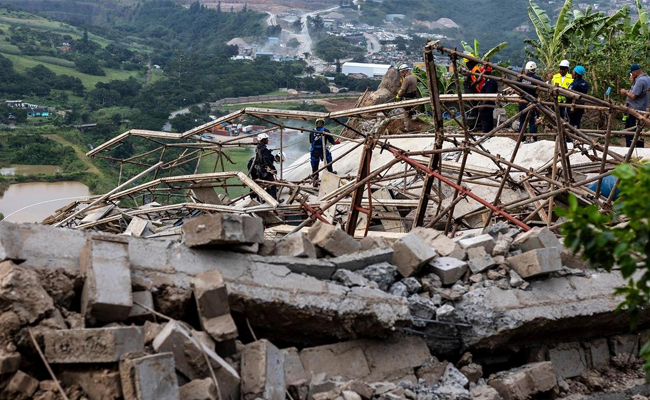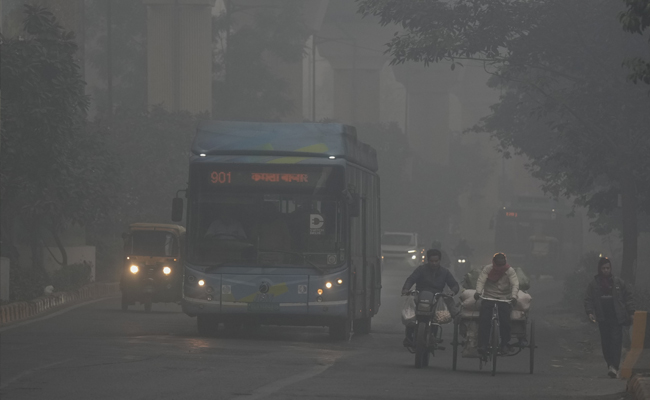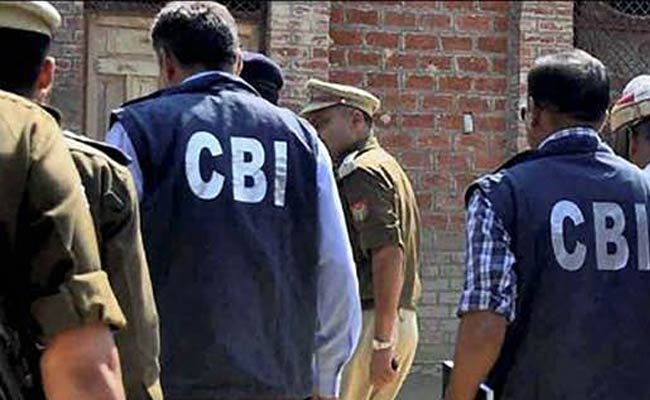Bengaluru (PTI): A 64-year-old man died in the city due to COVID-19 infection five days ago, Karnataka Health Minister Dinesh Gundu Rao said on Wednesday. Asked if the cause of death is the new subvariant JN.1 of the SARS CoV-2 virus, he said it is not known so far.
The person, who had comorbidities, is a resident of Chamarajpet and died on December 15, the Minister told reporters.
"It is still not known whether the patient had JN.1 sub variant infection. He had heart failure, also TB infection. He also had hypertension, lung disease, bronchial asthma, along with COVID-19 and pneumonia," Rao added.
Commissioner of Health and Family Welfare Services, Randeep D, told PTI: "It's the first (COVID death) after recent surge in cases".
Rao, meanwhile, said the state government would increase testing to gauge the rate of COVID-19 infections. In the next three days, it intends to increase the number to 5,000 tests per day.
RT-PCR tests have been made mandatory for all severe acute respiratory infection (SARI) cases, and at least 1 in 20 influenza-like illness (ILI) cases, he said.
A meeting will be held with Chief Minister Siddaramaiah and Technical Advisory Committee (TAC) on Thursday to discuss further measures to be taken and preparations made, Rao said.
The Minister earlier attended a virtual meeting by union Health Minister Mansukh Mandaviya with Health Ministers of all states, officials from the central and state governments, and representatives from Indian Council of Medical Research (ICMR) and NITI Aayog, among others.
He said there is need to do more tests and genome sequencing to know about the spread of infection, adding, instructions have been issued to do more tests, especially in border districts -- Dakshina Kannada, Kodagu, Chamarajanagara and Mysuru.
Karnataka government on Tuesday issued an advisory asking people above 60 years, those with comorbidities, pregnant women and lactating mothers, to wear face masks when outdoor, and to strictly avoid visiting closed, poorly ventilated spaces and crowded areas, in the wake of current Covid-19 situation in the country and detection of JN.1 sub variant in neighbouring Kerala.
It also issued a circular instructing authorities in districts bordering Kerala and Tamil Nadu to be vigilant, and ensure adequate testing and timely reporting of Covid cases.
Karnataka has emerged as the state doing the most number of tests, Rao said. More than 1,000 tests have been conducted in the last 24 hours. Kerala is also doing nearly 1,000 tests daily.
"Our intention is to increase it (testing) every day and by Saturday we want to do 5,000 tests per day," he said.
For genome sequencing, there should be availability of at least 50 samples, he further said. "As we do more tests and sequencing, we will get an accurate picture on the situation and infection spread level. So the state government has decided to do this."
Highlighting that the Centre has advised to take all necessary precautions and preparations related to arrangements for oxygen supplies, ventilators and isolation beds, among others, he said the state government is already taking measures in this regard.
"We have requested the Centre for cooperation in reducing the cost of annual maintenance of PM CARE ventilators, as it is bit expensive. Also we have requested for restoring the ICMR portal which has not been functioning properly, to get regular data."
Asserting that there is no need for any worry, Rao said the state government has made it mandatory for all health workers to wear masks, as they will be more exposed to infections.
The Minister pointing out that the new variant has been found in various countries, and its spread may be fast like in the case of Omicron infections, but is not "strong and life threatening" as in the case of COVID first and second waves.
"We (Karnataka during today's meeting) raised a query about imposing any restrictions like in the case of foreign travelers and screening in border districts, bordering the states that have higher number of cases and at airports.
But the Centre said that there are no restrictions or screening as of now and if any change or fresh guidelines in this regard, it will communicate depending on the situation. However, if there are symptomatic cases, it can be looked at," he said.
On increasing COVID testing, Rao said there is a requirement of testing kits, and by Saturday the state will get enough supplies of RT-PCR kits and VTM vials required for testing.
There is no restriction on New Year celebrations and gatherings as of now, but wearing masks is always good for everyone, especially at crowded places, the Minister said.
He said the government has not gone into quarantine rules or protocol as of now. "We will look into it, if the severity of infection and hospitalisation increase."
Let the Truth be known. If you read VB and like VB, please be a VB Supporter and Help us deliver the Truth to one and all.
Johannesburg (PTI): A 52-year-old Indian-origin man is among four people killed after a four-storey Hindu temple under construction collapsed in South Africa's KwaZulu-Natal province, officials have said.
The New Ahobilam Temple of Protection, situated on a steep hill in Redcliffe in north of eThekwini (formerly Durban), was being expanded when a section of the building gave way on Friday while workers were on site.
The exact number of workers and temple officials believed to be trapped beneath tonnes of rubble is unknown.
While two people, a construction worker and a devotee, were confirmed dead on Friday, the death toll rose to four on Saturday after rescue teams recovered more bodies.
Of the four deceased, one has been identified as Vickey Jairaj Panday, an executive member of the temple trust and manager of the construction project, local media reported, quoting officials.
Panday had been deeply involved in the development of the temple since its inception nearly two years ago, the reports said.
Sanvir Maharaj, director of Food for Love, a charity affiliated to the temple, also confirmed that Panday was among those who had died.
Rescue workers, who spent two days trying to recover a fifth body that had been located, had to suspend operations on Saturday afternoon due to inclement weather, Reaction Unit South Africa spokesperson Prem Balram told local media.
“At this stage, it cannot be confirmed whether additional individuals remain trapped beneath the rubble,” he said.
The temple was designed to resemble a cave, using rocks brought from India and excavated on site, and the family building the structure had claimed that it would house one of the world's largest deities of Lord Nrsimhadeva.
The eThekwini municipality, in a statement, said no building plans had been approved for the project, suggesting the construction was illegal.
Initial rescue efforts had been guided by cellphone calls from one of the trapped persons, but communications ceased late Friday evening, officials said.
KwaZulu-Natal Provincial Minister for Cooperative Governance and Traditional Affairs Thulasizwe Buthelezi visited the site on Saturday and pledged that rescue operations would continue for as long as necessary, even as experts noted that there was little hope of finding more survivors.
Buthelezi expressed gratitude to the combined government and private teams involved in the search and rescue operation, including a special dog unit from the Western Cape.




